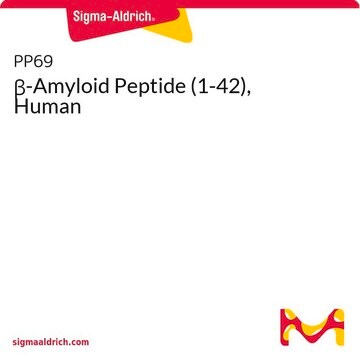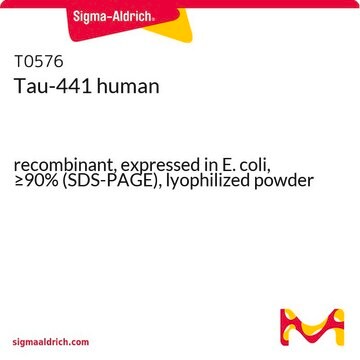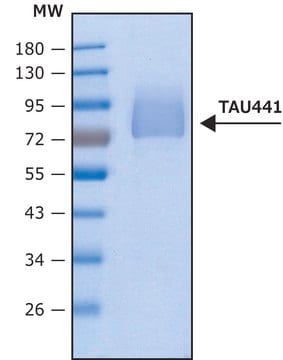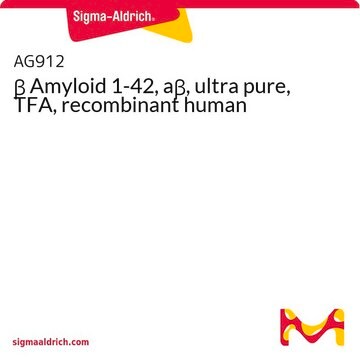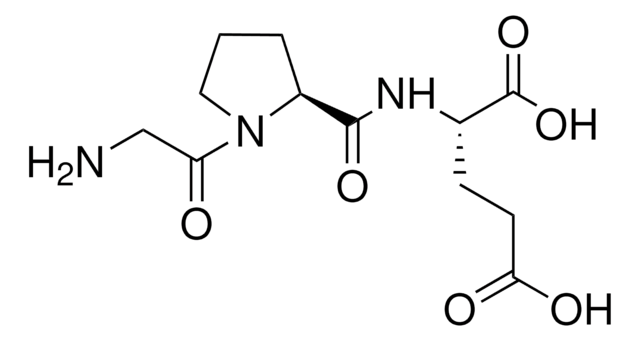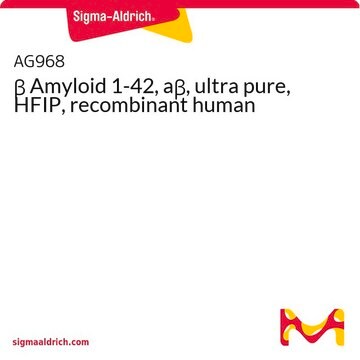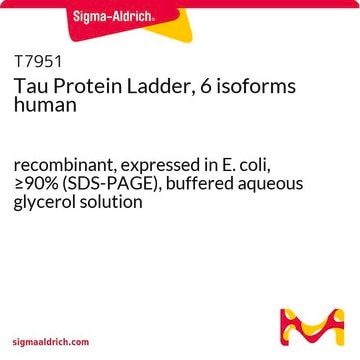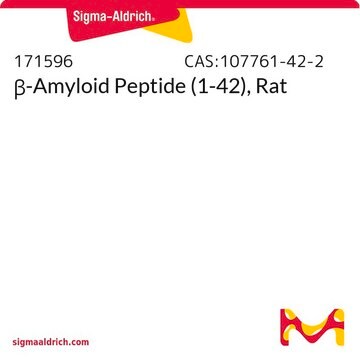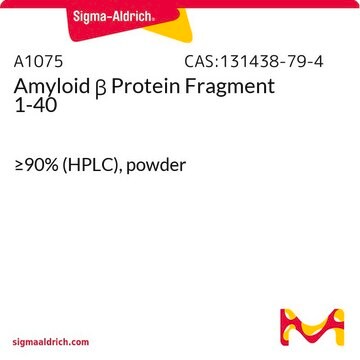AG916
β Amyloid 1-42, aβ, scrambled, TFA, recombinant E. coli
About This Item
Recommended Products
biological source
Escherichia coli
Quality Level
Assay
>97%
form
powder
manufacturer/tradename
Chemicon®
NCBI accession no.
UniProt accession no.
Gene Information
human ... APP(351)
General description
SEQUENCE: Lys-Val-Lys-Gly-Leu-Ile-Asp-Gly-Ala-His-Ile-Gly-Asp-Leu-Val-Tyr-Glu-Phe-Met-Asp-Ser-Asn-Ser-Ala-Ile-Phe-Arg-Glu-Gly-Val-Gly-Ala-Gly-His-Val-His-Val-Ala-Gln-Val-Glu-Phe
PEPTIDE CONTENT: 500 µg per vial
COUNTER ION: TFA
Application
The TFA salt is what has been the industry standard.
The HFIP makes the beta-amyloid homogenously monomeric.
The NaOH apparently make it monomeric too and is also water soluble, which the TFA salt and HFIP are not.
The HCl salt is supposed to be more biological, as TFA is not found in the body.
By offering the different salts, it lets the researchers duplicate the different assays that have been developed by other researchers (see below).
TFA: Shu-chuan Jao, S-C, et. al. 1997, Amyloid; Int J Exp. Clinical Invest. 4, 231
HFIP: Stine, W.B. et. al. 2003, J. Biol. Chem, 278, 11612
NaOH: Fezoui, Y., et. al. 2000, Amyloid, 7, 166
HCL: Kanek, I and Tutumi, S., 1997, J. Neurochem, 68, 438
Neuroscience
Neurodegenerative Diseases
Packaging
Physical form
Storage and Stability
Legal Information
Disclaimer
Storage Class Code
11 - Combustible Solids
WGK
WGK 1
Flash Point(F)
Not applicable
Flash Point(C)
Not applicable
Regulatory Listings
Regulatory Listings are mainly provided for chemical products. Only limited information can be provided here for non-chemical products. No entry means none of the components are listed. It is the user’s obligation to ensure the safe and legal use of the product.
JAN Code
AG916-500UG:
Certificates of Analysis (COA)
Search for Certificates of Analysis (COA) by entering the products Lot/Batch Number. Lot and Batch Numbers can be found on a product’s label following the words ‘Lot’ or ‘Batch’.
Already Own This Product?
Find documentation for the products that you have recently purchased in the Document Library.
Our team of scientists has experience in all areas of research including Life Science, Material Science, Chemical Synthesis, Chromatography, Analytical and many others.
Contact Technical Service